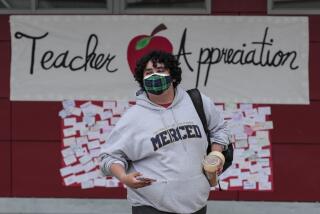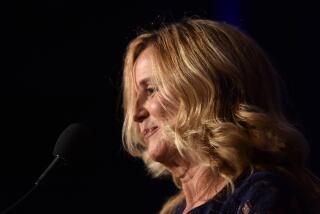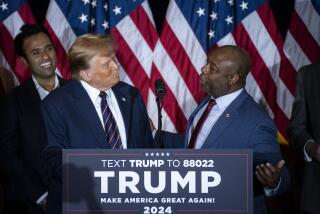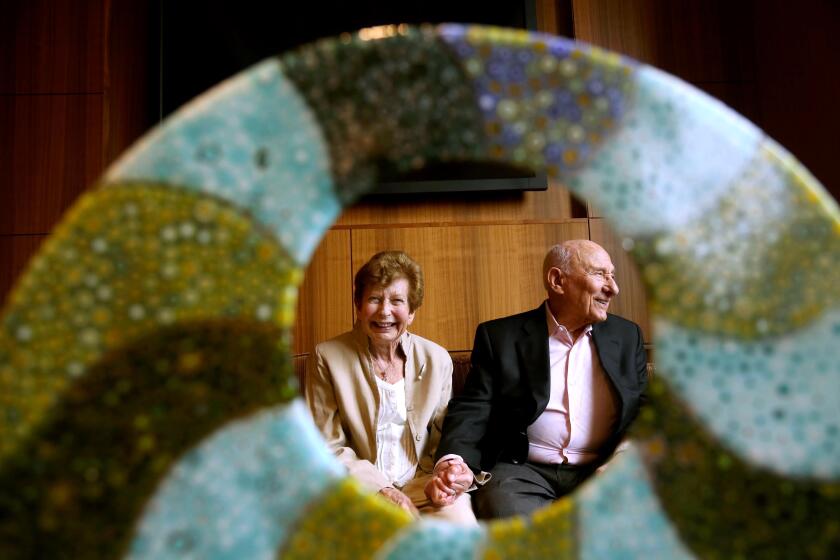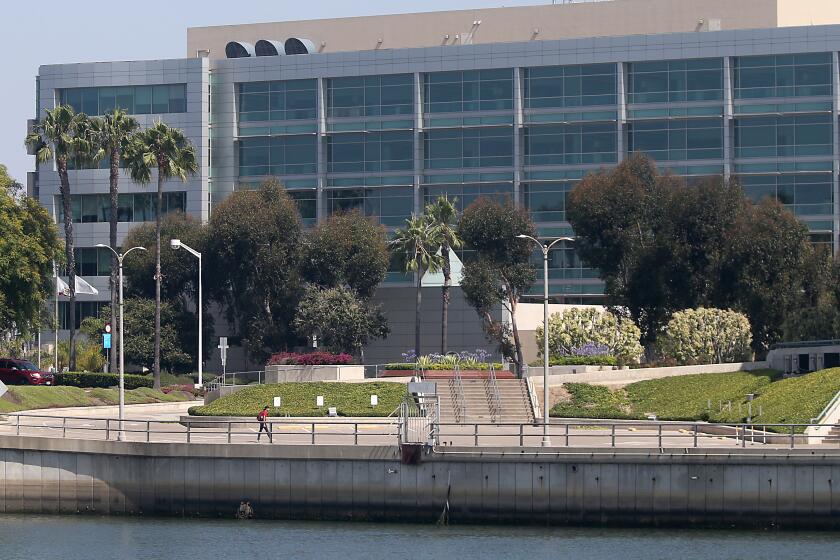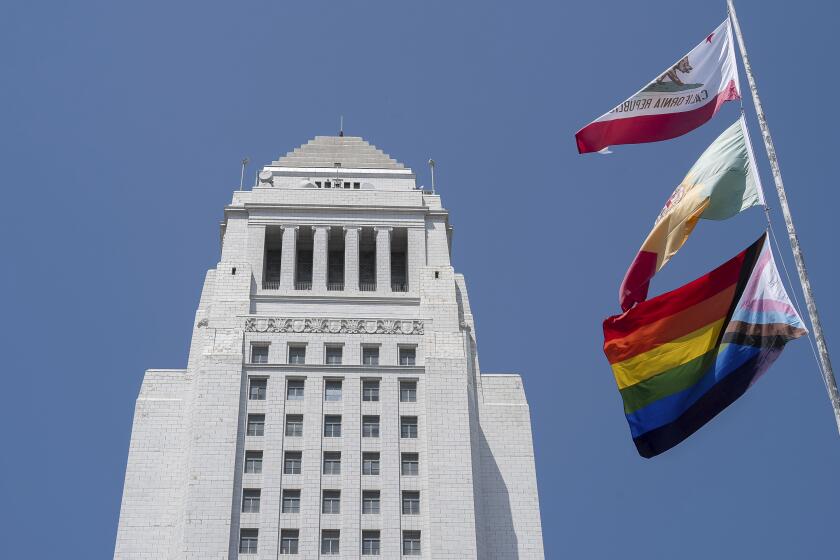For some teachers, Kavanaugh’s nomination is a civics lesson for the #MeToo era
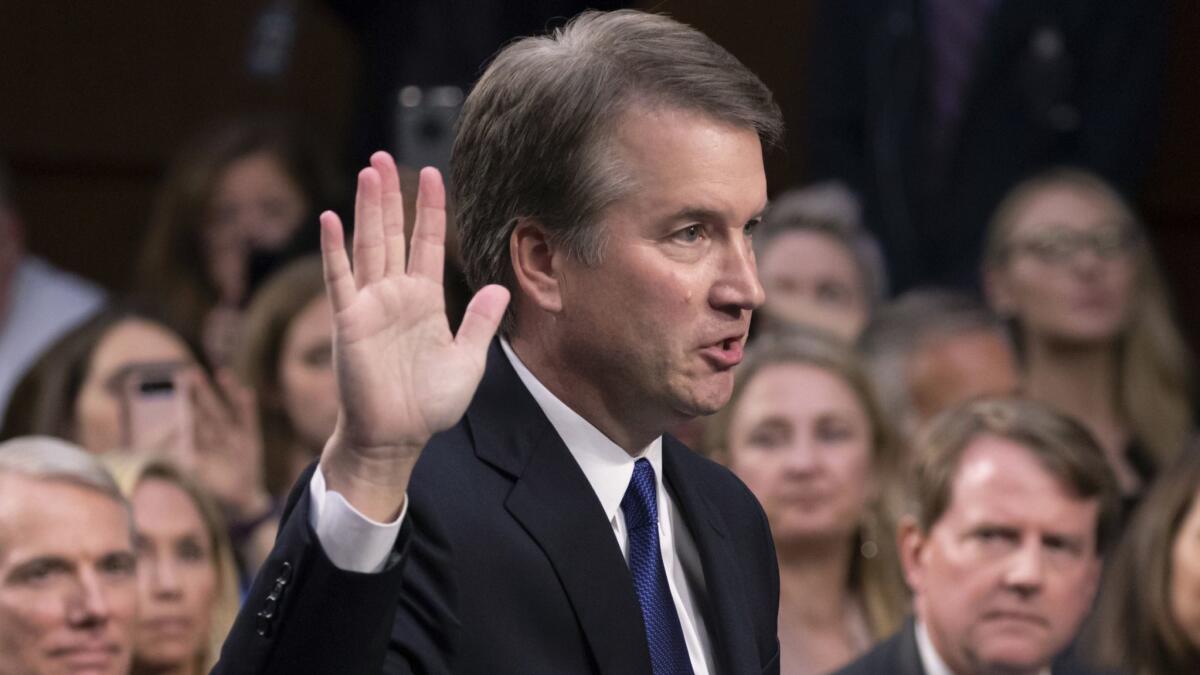
After news broke over the weekend that a woman had accused Judge Brett Kavanaugh of sexual assault, AP Government teacher Brandon Cabezas didn’t have to ask himself whether he should talk to his students about it. His students brought it up.
“This was definitely a robust discussion,” Cabezas said. “We didn’t talk about anything else for the first half-hour of class.”
Most of Cabezas’ 12th-graders at the Ramon C. Cortines School of Visual and Performing Arts in downtown Los Angeles are 17 years old. They’re the same age Kavanaugh was when, Christine Blasey Ford said, he pinned her down, groped her and covered her mouth to stop her from screaming. Kavanaugh has denied her allegations.
They’re also old enough to have followed the 2016 election, been exposed to then-candidate Donald Trump’s infamous “Access Hollywood” video and read a year’s worth of #MeToo headlines. In other words, they’re familiar with the debate over how sexual misconduct allegations should be treated.
What’s not clear is how this issue should be treated in the classroom.
For some social studies and civics teachers, President Trump’s nomination of Kavanaugh to the Supreme Court was an ideal, real-world lesson in the separation of powers and the checks and balances built into American government. The Senate Judiciary Committee’s hearings were ready-made course material.
But Ford’s accusation that Kavanaugh had sexually assaulted her when they were teenagers has changed the conversation unexpectedly.
Jasmine Uribe, director of community initiatives for Break the Cycle, an advocacy organization that helps young people build healthy relationships, said this period of political turmoil could be a good teaching moment.
The scenario described by Ford, a California professor — regardless of any questions it may raise — is one that high school students may already have confronted or may encounter in the future, she said. It provides an opportunity for health teachers to get a discussion going about drinking and boundaries, sexual harassment and assault.
“It’s easier for students to talk about incidents that are out in the media versus talking about their personal life,” Uribe said.
It’s a chance to ask students, she said, “How do we talk about what’s healthy, what’s unhealthy in this situation? How would you help this student in this situation? Would you speak up?”
In some respects, California students may be better equipped to have these conversations than most.
Gov. Jerry Brown signed legislation in 2015 that made California the first state in the nation to mandate that schools teach sexual consent. Since 2016, when the law took effect, school districts that require their graduates to take a health class have had to teach students about affirmative consent, defined by the state as conscious and voluntary agreement to engage in sexual activity.
California students also now are required to take sexual health classes unless their parents request that they be excused.
In his AP Government class, Cabezas had asked students to bring in examples of current events related to what they are studying. Several arrived with news stories about Ford’s accusations — and questions.
Why would an accuser bring this up so many years later? Could Kavanaugh be criminally prosecuted? How is it that a man facing multiple allegations of sexual misconduct could be elected president but have a higher standard applied to his nominee for the Supreme Court?
“On the whole, they thought this was something that was relevant and should be vetted out,” Cabezas said. “The responses were really nuanced because they did consider the fact that people can change over time.”
Kevin Thompson, a government teacher at Oceanside High School in San Diego County, said he doesn’t plan to introduce such a polarizing topic into his classroom so early in the school year.
At some point, he said, his classes will have to talk about Kavanaugh’s nomination and the allegations because it’s vital to their development as informed citizens.
“You have to talk about it,” he said. “It’s how our democracy works.”
He might have the class analyze media coverage of the allegations or compare what happens in this case with what happened when Anita Hill spoke out about Supreme Court nominee Clarence Thomas, more than a decade before they were born.
But he plans to hold off for a while.
He doesn’t want to be perceived as having an agenda or trying to indoctrinate his students, he said, though he’ll facilitate the discussion if students bring it up on their own.
Right now, he said, his students are just learning about federalism. They won’t get to the media and the Supreme Court for another month at least.
Twitter: @annamphillips
Twitter: @Sonali_Kohli
More to Read
Start your day right
Sign up for Essential California for news, features and recommendations from the L.A. Times and beyond in your inbox six days a week.
You may occasionally receive promotional content from the Los Angeles Times.
